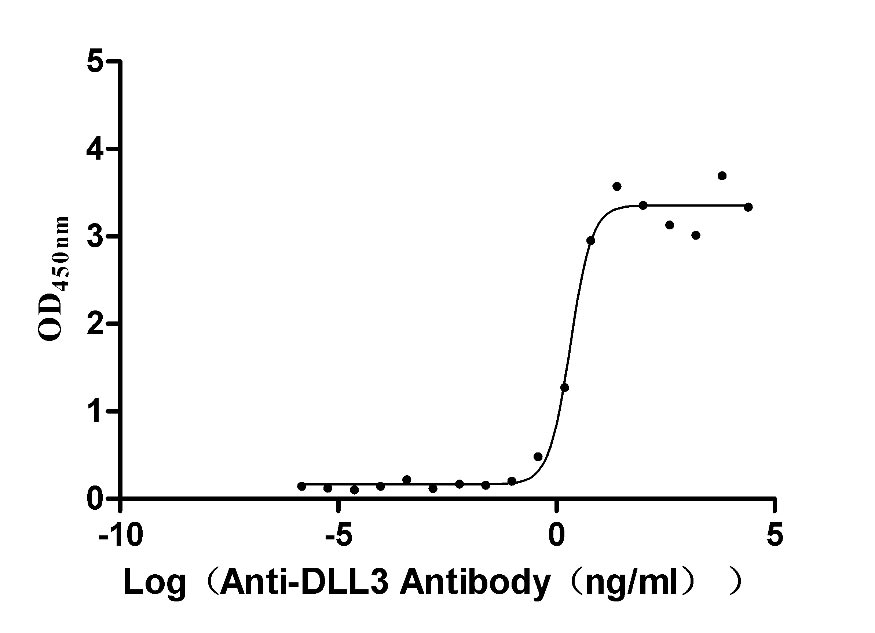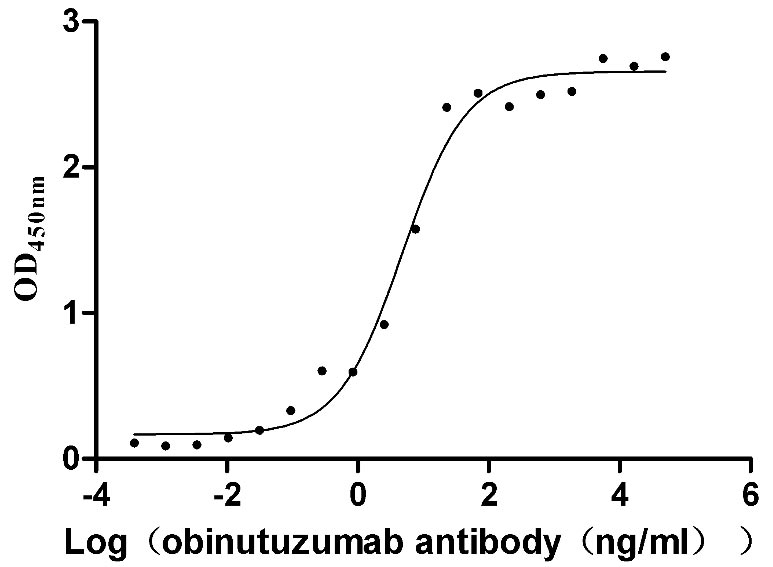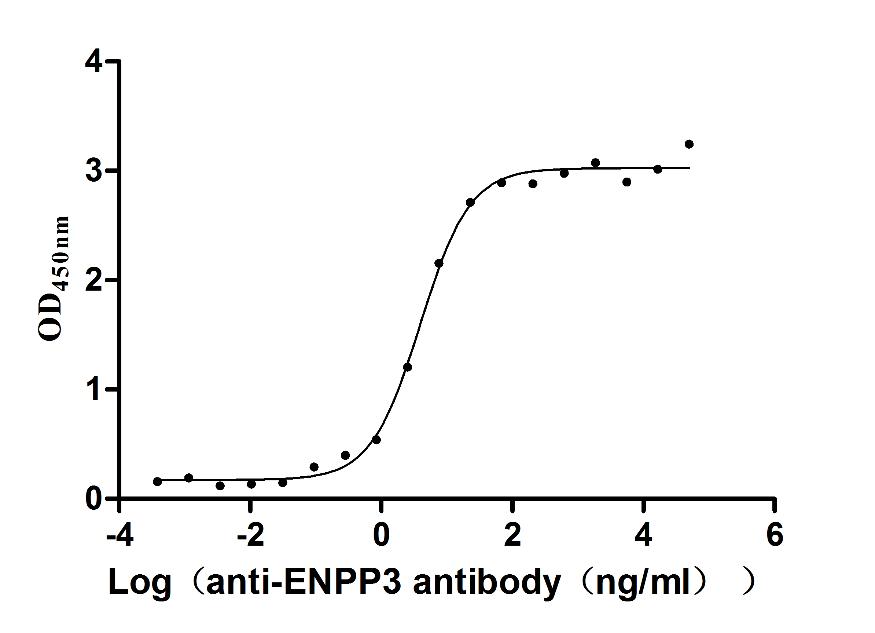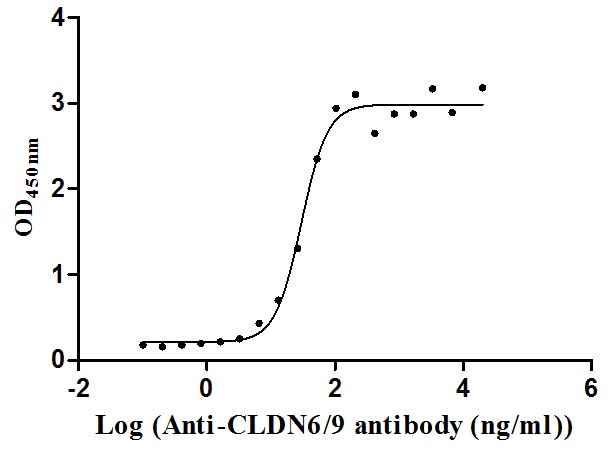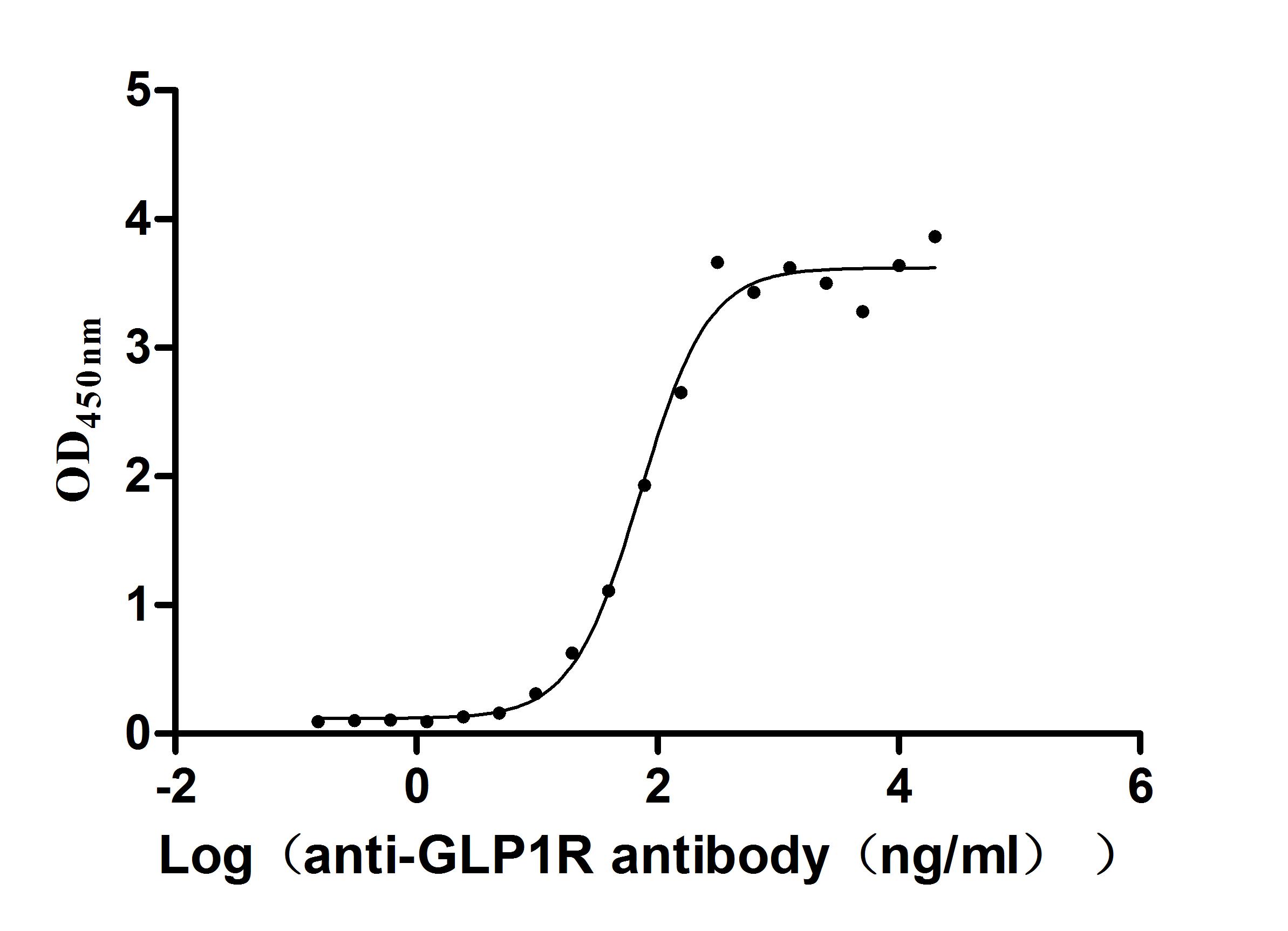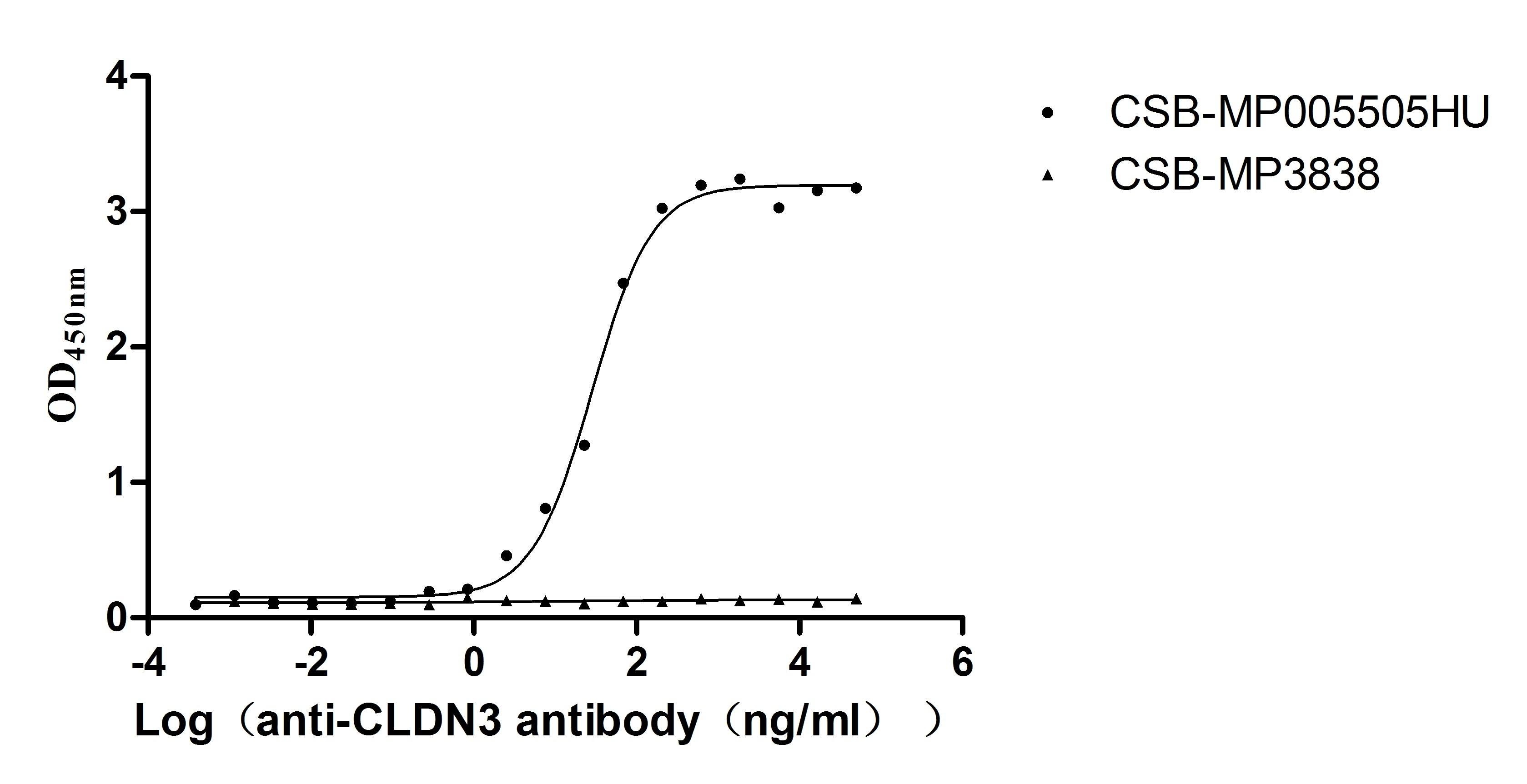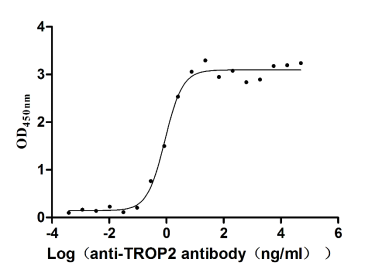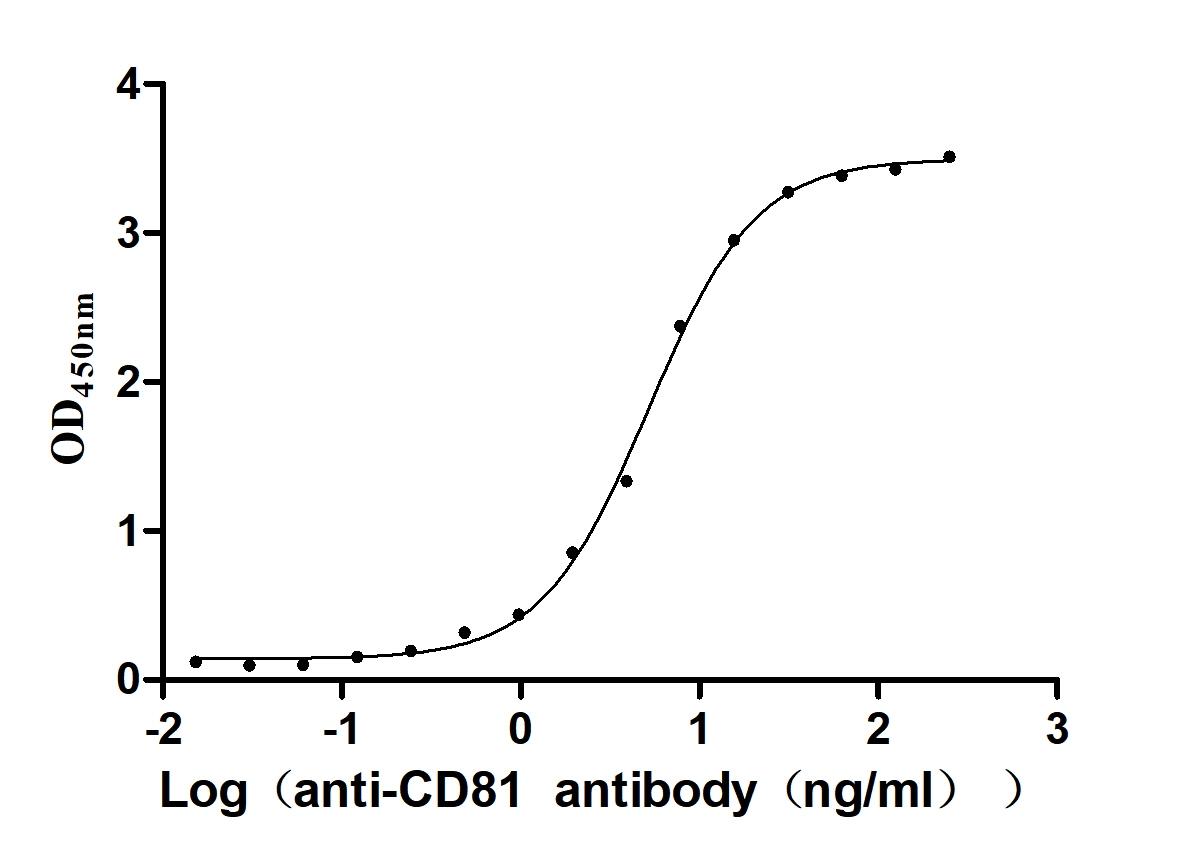Recombinant Drosophila melanogaster Serine/threonine-protein kinase polo (polo), partial
-
中文名稱:黑腹果蠅polo重組蛋白
-
貨號(hào):CSB-YP346361DLU
-
規(guī)格:
-
來源:Yeast
-
其他:
-
中文名稱:黑腹果蠅polo重組蛋白
-
貨號(hào):CSB-EP346361DLU
-
規(guī)格:
-
來源:E.coli
-
其他:
-
中文名稱:黑腹果蠅polo重組蛋白
-
貨號(hào):CSB-EP346361DLU-B
-
規(guī)格:
-
來源:E.coli
-
共軛:Avi-tag Biotinylated
E. coli biotin ligase (BirA) is highly specific in covalently attaching biotin to the 15 amino acid AviTag peptide. This recombinant protein was biotinylated in vivo by AviTag-BirA technology, which method is BriA catalyzes amide linkage between the biotin and the specific lysine of the AviTag.
-
其他:
-
中文名稱:黑腹果蠅polo重組蛋白
-
貨號(hào):CSB-BP346361DLU
-
規(guī)格:
-
來源:Baculovirus
-
其他:
-
中文名稱:黑腹果蠅polo重組蛋白
-
貨號(hào):CSB-MP346361DLU
-
規(guī)格:
-
來源:Mammalian cell
-
其他:
產(chǎn)品詳情
-
純度:>85% (SDS-PAGE)
-
基因名:polo
-
Uniprot No.:
-
別名:polo; CG12306; Serine/threonine-protein kinase polo; EC 2.7.11.21
-
種屬:Drosophila melanogaster (Fruit fly)
-
蛋白長度:Partial
-
蛋白標(biāo)簽:Tag?type?will?be?determined?during?the?manufacturing?process.
The tag type will be determined during production process. If you have specified tag type, please tell us and we will develop the specified tag preferentially. -
產(chǎn)品提供形式:Lyophilized powder
Note: We will preferentially ship the format that we have in stock, however, if you have any special requirement for the format, please remark your requirement when placing the order, we will prepare according to your demand. -
復(fù)溶:We recommend that this vial be briefly centrifuged prior to opening to bring the contents to the bottom. Please reconstitute protein in deionized sterile water to a concentration of 0.1-1.0 mg/mL.We recommend to add 5-50% of glycerol (final concentration) and aliquot for long-term storage at -20℃/-80℃. Our default final concentration of glycerol is 50%. Customers could use it as reference.
-
儲(chǔ)存條件:Store at -20°C/-80°C upon receipt, aliquoting is necessary for mutiple use. Avoid repeated freeze-thaw cycles.
-
保質(zhì)期:The shelf life is related to many factors, storage state, buffer ingredients, storage temperature and the stability of the protein itself.
Generally, the shelf life of liquid form is 6 months at -20°C/-80°C. The shelf life of lyophilized form is 12 months at -20°C/-80°C. -
貨期:Delivery time may differ from different purchasing way or location, please kindly consult your local distributors for specific delivery time.Note: All of our proteins are default shipped with normal blue ice packs, if you request to ship with dry ice, please communicate with us in advance and extra fees will be charged.
-
注意事項(xiàng):Repeated freezing and thawing is not recommended. Store working aliquots at 4°C for up to one week.
-
Datasheet :Please contact us to get it.
靶點(diǎn)詳情
-
功能:May play a role in regulating both nuclear and cytoplasmic aspects of the mitotic cycle. Regulates localization of the augmin complex during mitosis by ensuring its location on mitotic spindles. Also regulates augmin complex localization during male meiosis by promoting its placement at kinetochores while preventing its association with spindle microtubules.
-
基因功能參考文獻(xiàn):
- Polo is composed of an N-term kinase domain (KD) and a C-term polo-box domain (PBD), which regulates its subcellular localizations. PBD binding to the KD masks a nuclear localization signal (NLS). Activating phosphorylation of the KD leads to exposure of the NLS and entry of Polo into the nucleus before nuclear envelope breakdown. PMID: 29167465
- Polo is an important in vivo regulator of the pathological functions of APP. PMID: 26597721
- Both conditions impaired NSC lineage progression. Ca(2) mito homeostasis is influenced by Polo-mediated phosphorylation of a conserved residue in Miro PMID: 27093086
- Polo kinase is required for localization and activity of the chromosomal passenger complex in mitosis and meiosis. PMID: 25376909
- Centrioles, which usually separate during the anaphase of the first meiosis, remained held together in a V-shaped configuration suggesting that Polo kinase regulates the proteolysis that breaks centriole linkage to ensure their disengagement. PMID: 24802643
- Results show that Polo kinase positively and negatively regulates Augmin distribution for microtubule nucleation and acentrosomal spindle formation. PMID: 24829288
- our results indicate that polo forms a gene loop and polo transcription termination occurs by an Xrn2 and Pcf11 independent mechanism that requires TFIIB. PMID: 22992452
- Jumu and CHES-1-like control the division of cardiac progenitors by regulating the activity of Polo, a kinase involved in multiple steps of mitosis. PMID: 22814603
- POLO is required to promote amphitelic attachment and chromosome bi-orientation by regulating both the activity of the correction mechanism and the architecture of the centromere. PMID: 22389397
- Polo and protein phosphatase 2A collaborate to ensure centrosome attachment to nuclei PMID: 21852958
- In transgenic flies, a polo poly(A) signal in the 3' untranslated region is necessary for proper protein production level, cell proliferation and viability in the living organism. PMID: 21602789
- results reveal that the Feo/Klp3A complex is necessary for Polo recruitment to the spindle midzone; data imply that Polo recruitment to the central spindle is not required for furrowing, but some other aspect of cytokinesis PMID: 17593971
- mps1 and polo are sequestered to collagenase-sensitive filaments in Drosophila prometaphase oocytes under hypoxic conditions PMID: 19847308
- These results indicate that Gwl activity antagonizes Polo and thus identify an important regulatory interaction of the cell cycle. PMID: 17997611
- suggest a model in which the eventual activation of Cdc25 by an excess of Polo at stage 13 triggers nuclear envelope breakdown and entry into prometaphase PMID: 18052611
- The depletion of Polo results in a strong prometa/metaphase arrest with the spindle checkpoint activated in response to lack of tension PMID: 18719370
- Map205-dependent targeting of Polo to microtubules provides a stable reservoir of Polo that can be rapidly mobilized by the activity of Cdk1 at mitotic entry. PMID: 18832073
顯示更多
收起更多
-
亞細(xì)胞定位:Cytoplasm.
-
蛋白家族:Protein kinase superfamily, Ser/Thr protein kinase family, CDC5/Polo subfamily
-
組織特異性:Larval disks, brain and testis.
-
數(shù)據(jù)庫鏈接:
Most popular with customers
-
Recombinant Macaca fascicularis Delta-like protein 3 (DLL3), partial (Active)
Express system: Mammalian cell
Species: Macaca fascicularis (Crab-eating macaque) (Cynomolgus monkey)
-
Recombinant Human B-lymphocyte antigen CD20 (MS4A1)-VLPs (Active)
Express system: Mammalian cell
Species: Homo sapiens (Human)
-
Express system: Mammalian cell
Species: Macaca fascicularis (Crab-eating macaque) (Cynomolgus monkey)
-
Recombinant Human Claudin-9 (CLDN9)-VLPs (Active)
Express system: Mammalian cell
Species: Homo sapiens (Human)
-
Recombinant Human Glucagon-like peptide 1 receptor (GLP1R), partial (Active)
Express system: Mammalian cell
Species: Homo sapiens (Human)
-
Recombinant Human Claudin-3 (CLDN3)-VLPs (Active)
Express system: Mammalian cell
Species: Homo sapiens (Human)
-
Recombinant Human Tumor-associated calcium signal transducer 2 (TACSTD2), partial (Active)
Express system: Mammalian cell
Species: Homo sapiens (Human)
-
Recombinant Human CD81 antigen (CD81), partial (Active)
Express system: Mammalian cell
Species: Homo sapiens (Human)


